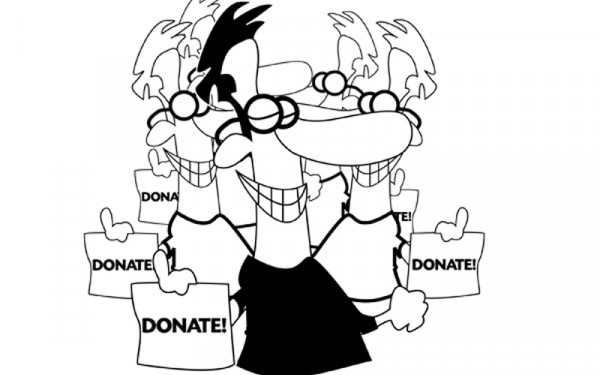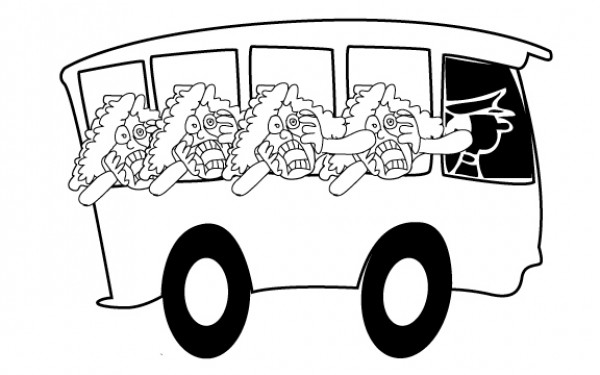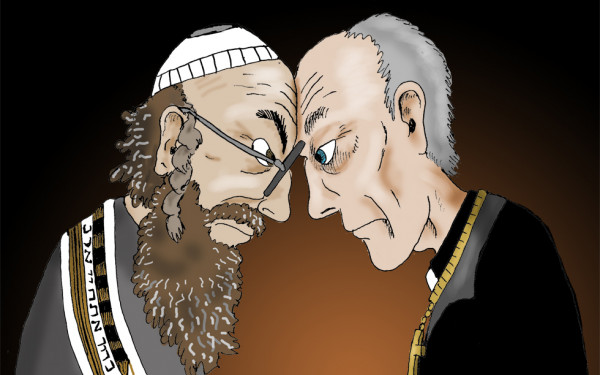Humour: The WD 40 of Healing
Drew Hayden Taylor—a pioneer of Native comedy—turned to humour to better express his culture in the theatre.
“Humor is the WD 40 of healing,” he said, speaking as the keynote of “An Extremely Serious and Intensely Sober Exploration of Native Humour in Canadian Media” last Thursday at the Masonic Memorial Temple.
Tired of seeing a “vast majority of Native plays, novels, scripts, stories and all the things being written by Native people or about Native people [that] were all dark, depressing, bleak, sad and angry.”
Taylor believes this representation is far from the truth.
“I’ve been very fortunate to visit over a 130 Native communities across Canada and United States. And everywhere I’ve gone I’ve usually been greeted with a laugh, a smile and a joke, but this wasn’t coming across in all the literature.”
All the characters were either “oppressed, depressed or suppressed,” he said, adding “that wasn’t my mother, that wasn’t the girls I was dating, that wasn’t my uncles. […] I found this very, very odd.”
An award-winning playwright, Taylor grew up on the reserve with funny stories by the bonfire. His first introduction to white culture was The Three Stooges.
Despite his instinctive fear of being hit in the face with a shovel, Taylor ventured out of the reserve after doing what he called “Rez Math.”“I had 25 first cousins,” he said. “So it was pretty apparent that I was related to practically every girl on the reserve.”
Taylor got his break when award-winning Cree playwright Tomson Highway offered him the post of resident writer through a Writer in Residency Program.
Theatre was a far cry from what Taylor planned to do.
“I didn’t know anything about theatre, the education I had on the Reserve taught me that theatre was dead, white men. And I didn’t know any. So, I said no.”
Tomson then told him it was 20 weeks work for $400 a week. Taylor took the bait.
Soon after, Taylor began working on his first play. “The Bootlegger Blues” came out in the midst of the Oka Crisis in 1990, when Native comedy was considered an oxymoron.
This, he said, was at the height of political correctness. “You don’t laugh at Native people, do you know what they’ve been through?” said Taylor about the perception of Native comedy.
The play was produced by The Lighthouse Theatre, a white theatre company, and packed the house with a politically correct audience of 311 on opening night.
“This was a play about Native people and beer so they were all sitting there not knowing what to do,” he said. It wasn’t until a group of eight Iroquois started laughing in the audience that—in a ripple progression—the whole house roared.
“What they were waiting for is for the permission to laugh,” he said.The play went on to win a Canadian Authors Association drama award.
Taylor’s ensuing plays have crossed the continent and have been produced internationally.
“At the end of the day, 95 per cent of people will laugh at the same thing,” he said. “There isn’t necessarily a Native way of cooking an egg. It’s just the spices that we use in cooking that give it a certain flavour.”
Taylor was invited to speak at the fifth annual Lecture on Diversity and Canadian Media, an initiative by the Center for Research-Action on Race Relations and Concordia’s Department of Communication Studies.
This article originally appeared in Volume 31, Issue 13, published November 9, 2010.





